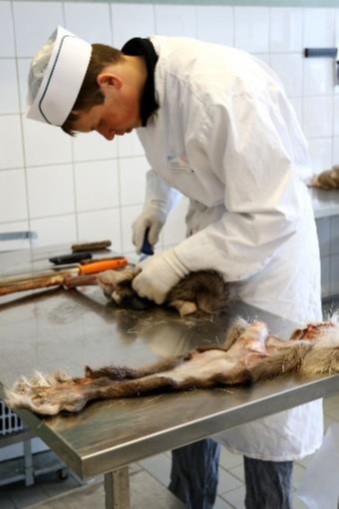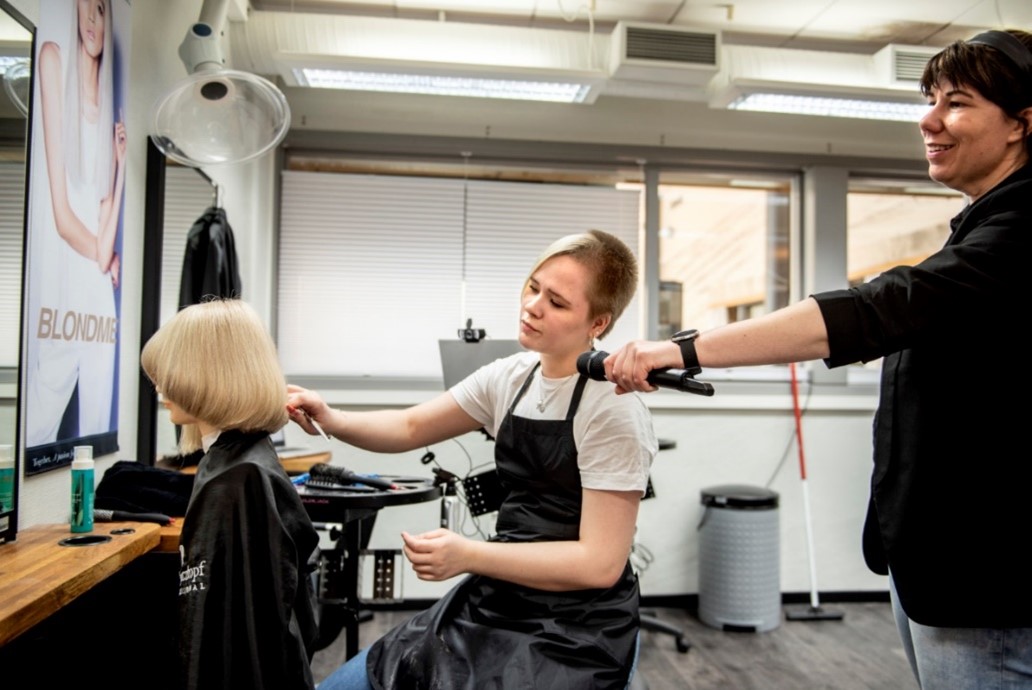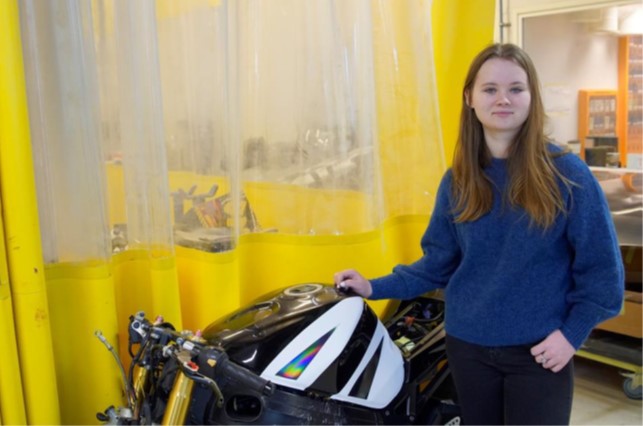Arctic Skills – project has worked for improving the status and pride for vocational education in the programme area. Project activities range from international vocational tournaments to cross-border exchange of students and apprentices, and their practice in enterprises.
A gathering of the emerging professionals

Seeing a vocational skills tournament is, for a newcomer, amazing. ”How do those young people know how to do that?” you ask yourself. And also, for an outsider spectator, it illuminates the fact that there is a new generation of experts coming, year after year, to these professions participating in the tournament. The respect for the professionals, and for vocational education, gets a boost.
National tournaments in vocational skills have been arranged in the participating countries for decades – in Finland starting from the 1980´s. International tournaments is a natural consequence of the national ones. Hundreds of students have participated in the Arctic Skills tournaments, where also schools and students from Russia participated during 2020-21. Arctic Skills tournaments have included at least the following vocations: Heavy machinery, Car painting, Welding, Cook, Waiter, Plumber, Painting, Electricians, ICT-service, Hairdresser, Motor vehicle mechanic, Building constructions, Duodji, Health & Social care and Reindeer operations.
COVID-19 restrictions were transcended

During the COVID-19 related traveling and gathering restrictions, the arrangement of the next tournament of course was at stake. The consortium made careful assessment of the alternatives. The solution was to arrange competitions on different premises of the participating countries, and digital, online, tools would serve to combine them and also give a chance for the audiences to follow the competition online.
In short, the restrictions gave the Arctic Skills project a chance to new solutions.
After national competitions were carried out, an Arctic Skills tournament was arranged as a distance competition with digital connections. The competition covered a total of 15 competences. The actions were located in Övertorneå, Tornio, Rovaniemi, Kirkenes, Murmansk, and Apatity. The Swedish partner, represented by Utbilding Nord in Övertorneå, was the host and responsible for conducting the competition. Utbildning Nord established a broadcast studio, and interested audiences could follow the work of the competitors also via occasional interviews.
Meeting the colleagues across the border

After COVID-19 related traveling restrictions were lifted, Arctic Skills had finally the chance to carry out the remaining cross-border exchange of students and apprentices. Five colleges participated in the exchange and 65 persons had the opportunity to observe the education, work and routines of the neighbouring country. The participants were either teaching or studying to be hairdressers, light vehicle mechanics, heavy machinery operators, welders, building constructors, car painters, cooks, waiters, plumbers, health and social care workers, reindeer herders, and duodji (Sámi handicraft) professionals. In total, 24 enterprises from these branches hosted the students.
Some of their thoughts in the feedback:
“It went well, we had nor too much or too little to do. I think that the students would have spent more time with the Norwegian students if they had been there longer.”
“Some feedback from the students even though it varied: some student wished a stricter program. And other students wished that the exchange could have carried on over more time, they could easily have stayed for two more weeks.”
“The assessment is that perhaps a week was a bit too long, tiring for a teacher who has 24/7 responsibilities. The learning outcome was good, the Finnish teacher was well prepared and very friendly. Archery in the afternoon captivated everyone.”
Example: Car painters

The car painters are a small and most valuated group in the trade. In our region, only Kirkenes and Rovaniemi can offer an education in this field. REDU has a well-equipped department, which could provide an interesting experience for the Norwegian guests. Two Norwegian students came to REDU to study car painting. One of them is Charlotte Jørgensen-Bergheim, who is studying to become a car painter in Kirkenes. “The exchange week was fun and different. One difference is that more simulators are used in studies in Finland”. “During the exchange week, we have done a motorbike taping exercise, hydro-dipping paint and visited the Wetteri and Pörhö workshops”. Vocational education in Norway has a different structure compared to Finland: the students first study at the educational institution for two years, then the student does an apprenticeship in a company for two years.
Impact of Arctic Skills
Boosting visibility of vocational education is just one aspect of the competitions. They enhance cooperation between businesses and educational institutions, so that the businesses e.g. get a view to how people are trained – people who later perhaps work with them. Teachers, too, need the interaction between educational institutions, in order to utilise the experiences and best practices of each other.
Project: Arctic Skills
Website: arcticskills.com/
Lead partner: Kirkenes Upper Secondary School, Norway
Other partners:
- Organization for private training offices in Finnmark County, Hesseng
- Kemi-Tornionlaakso Municipal Education and Training Consortium Lappia, Tornio
- Murmansk Technological College of Service (MTCS), Murmansk
- Tornedalsskolan, Haparanda
- Sàmi Institute for Education, Inari
- Sàmi High School and Reindeer Husbandry School, Kautokeino
- Lapland Education Centre REDU, Rovaniemi
- Utbildning Nord, Övertorneå
- Gränsälvgymnasiet, Övertorneå
Information about the project in KEEP database
